The Importance of Dual Diagnosis Treatment in Recovery

Understanding Dual Diagnosis and Its Critical Role in Recovery
The journey to effective recovery from mental health and substance use disorders becomes significantly more attainable when both conditions are addressed simultaneously. Dual diagnosis, the coexistence of a mental health disorder alongside a substance use disorder, complicates treatment and recovery. Recognizing its importance in creating comprehensive treatment plans is essential for improving outcomes and fostering long-term well-being.
What Is Dual Diagnosis and Its Significance in Recovery
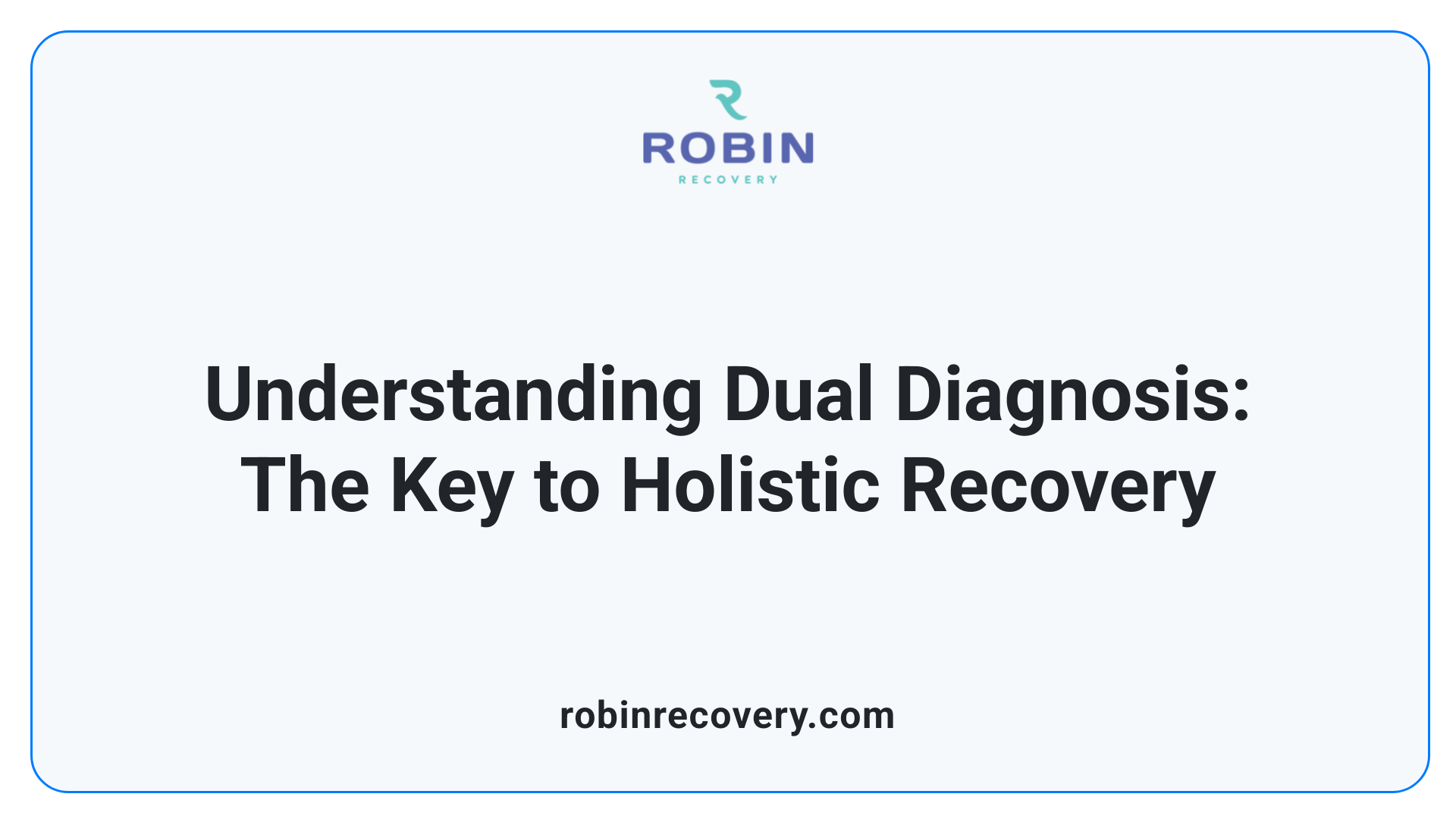
What is dual diagnosis and why is it important for effective recovery?
Dual diagnosis, also known as co-occurring disorders, occurs when a person simultaneously experiences a mental health disorder alongside a substance use disorder (SUD). This overlap is highly prevalent, affecting approximately 50% of individuals with severe mental health issues and those struggling with addiction. Common mental health conditions involved include anxiety, depression, bipolar disorder, PTSD, and schizophrenia.
The coexistence of these disorders is often driven by shared risk factors such as genetic predispositions, traumatic experiences, and ongoing stress. Sometimes, mental health issues lead individuals to misuse substances as a way of self-medicating, which can complicate the course and treatment of each disorder. Conversely, prolonged substance use can trigger or worsen mental health symptoms by altering brain chemistry.
Effectively managing dual diagnosis is crucial for several reasons. Without integrated treatment, symptoms of one disorder can exacerbate the other, leading to persistent health problems, higher chances of relapse, and increased risk of hospitalization. Simultaneous treatment approaches that address both conditions holistically, including behavioral therapies like CBT and DBT, medication management, and ongoing peer support, are essential.
By treating mental health and substance use disorders together, individuals are more likely to achieve lasting recovery, improve their quality of life, and reduce the chances of relapse. This comprehensive strategy facilitates better understanding of the intertwined nature of these issues and promotes healthier coping mechanisms, ultimately supporting a more sustainable path to wellness.
The Importance of Screening, Diagnosis, and Personalization in Management
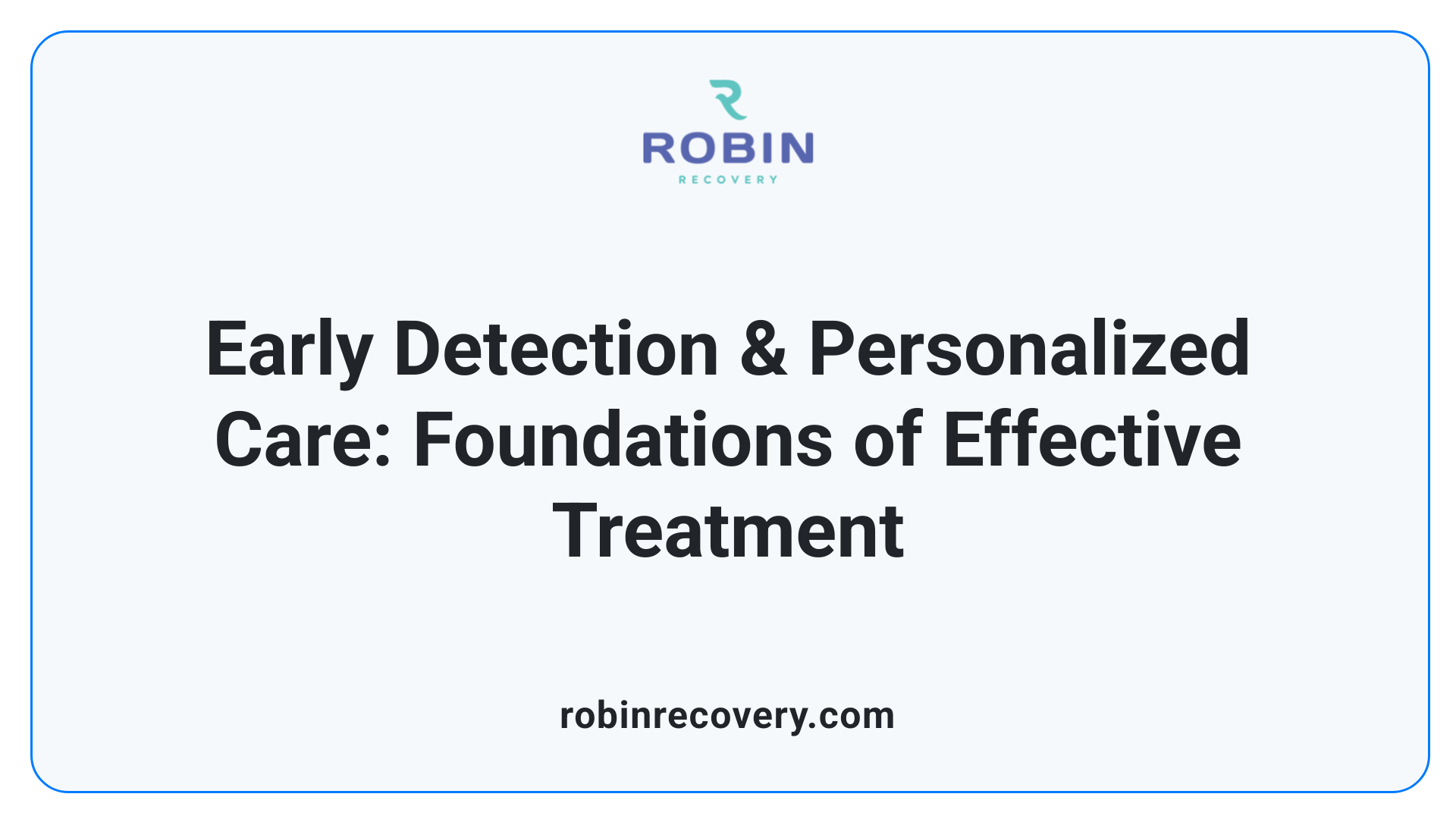
What is the significance of screening, diagnosis, and personalized treatment in managing dual diagnosis conditions?
Effective management of dual diagnosis fundamentally depends on thorough screening, accurate diagnosis, and individualized care plans. Because symptoms of mental health disorders and substance use issues often overlap, healthcare providers utilize broad and standardized screening tools to detect both conditions early. This proactive approach minimizes the risk of misdiagnosis and ensures that neither disorder is overlooked.
Once screening identifies potential co-occurring conditions, comprehensive assessments are conducted to understand each person's unique psychological, medical, and social context. This helps in creating a detailed biopsychosocial profile that guides treatment planning. Personalized treatment plans may include tailored behavioral therapies, medication regimens, and support services that align with individual needs.
Advances in diagnostic methods, like genetic testing and real-time monitoring, enable clinicians to match medication more precisely and monitor treatment progress more effectively. Such personalization not only enhances the efficacy of interventions but also improves patient adherence and reduces the likelihood of adverse medication interactions.
Ultimately, early detection through rigorous screening and diagnosis, combined with care tailored to individual circumstances, leads to integrated treatment approaches. This comprehensive strategy enhances recovery prospects, decreases relapse rates, and minimizes hospitalizations, paving the way for sustained long-term recovery.
Approaches and Treatment Models for Dual Diagnosis
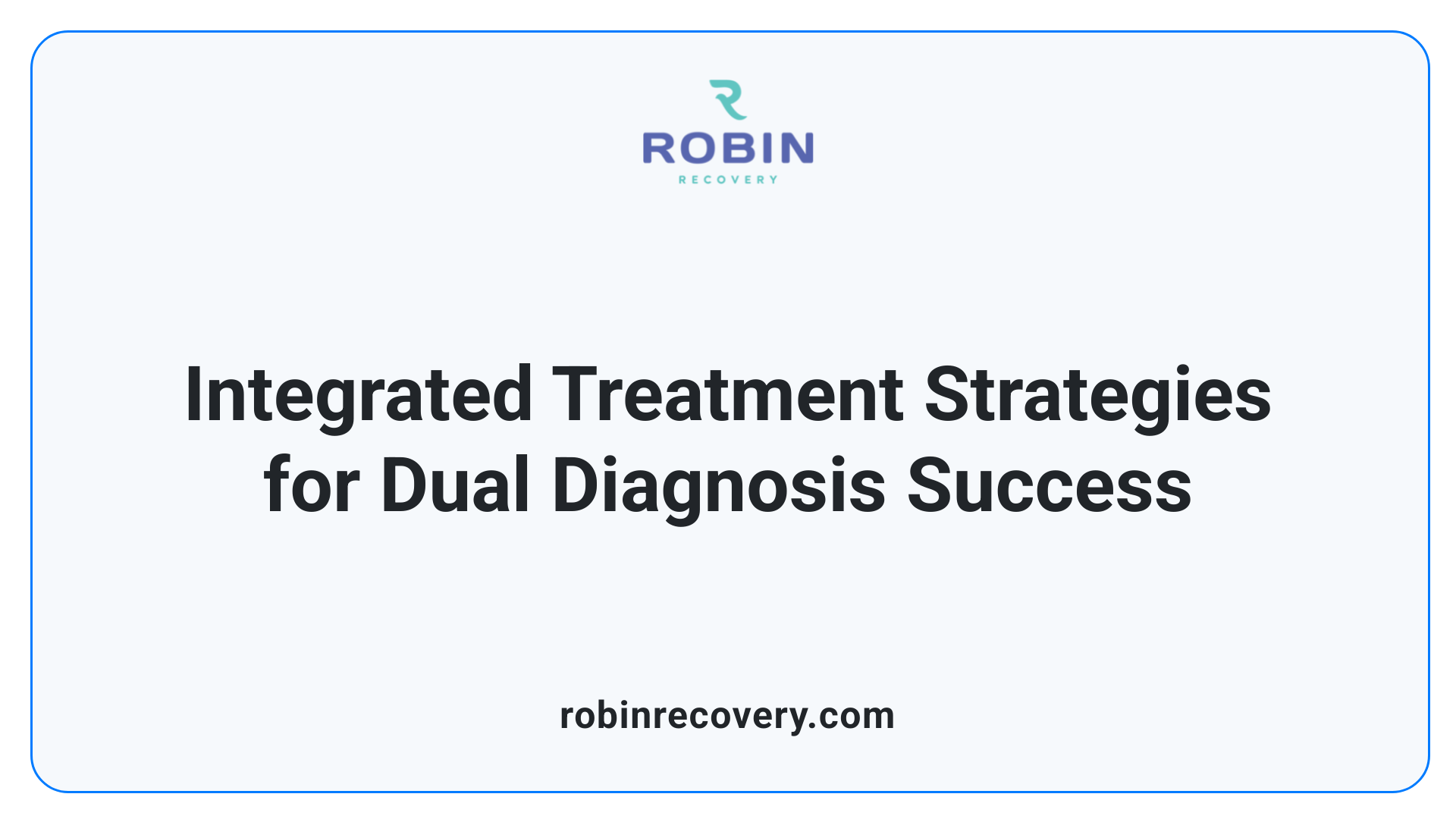
What are the approaches and treatment models used in dual diagnosis treatment?
Managing dual diagnosis involves comprehensive, integrated treatment models designed to address both mental health and substance use disorders at the same time. The primary goal is to deliver seamless care that considers the complex interplay between these conditions, which often influence each other.
One of the most prevalent approaches is the use of evidence-based therapies such as cognitive-behavioral therapy (CBT) and dialectical behavior therapy (DBT). These therapies help individuals develop healthier coping skills by addressing negative thought patterns, emotional regulation, and behavioral responses related to both mental health issues and addiction.
Treatment plans are typically developed by multidisciplinary teams comprising psychiatrists, psychologists, therapists, addiction specialists, and social workers. This collaboration ensures that the care is tailored to each person's unique needs, promoting better outcomes.
Programs may vary in setting: inpatient residential facilities offer intensive, 24/7 care including medical support, therapy, and medication management, ideal for stabilization. Outpatient programs, on the other hand, focus on ongoing therapy, support groups, and medication management, accommodating individuals as they reintegrate into daily life.
In addition to psychotherapy, medication management plays a vital role. Psychiatrists prescribe antidepressants, mood stabilizers, anti-anxiety medications, or relapse-preventing agents, carefully monitored to avoid adverse interactions.
Support groups and peer-led programs further reinforce recovery by providing emotional support, shared experiences, and encouragement, which are crucial for maintaining sobriety and managing mental health conditions.
A key element of the blended approach is the holistic nature of care — addressing physical health, emotional well-being, lifestyle adjustments, and social stability. This integrated model enhances the chances for lasting recovery, decreases relapse rates, and improves overall quality of life.
In summary, effective dual diagnosis treatment relies on coordinated, personalized interventions within a multidisciplinary framework. These methods treat mental health and substance use disorders as interconnected issues, fostering sustainable recovery and well-being.
Why Treating Co-Occurring Disorders Jointly Delivers Better Outcomes
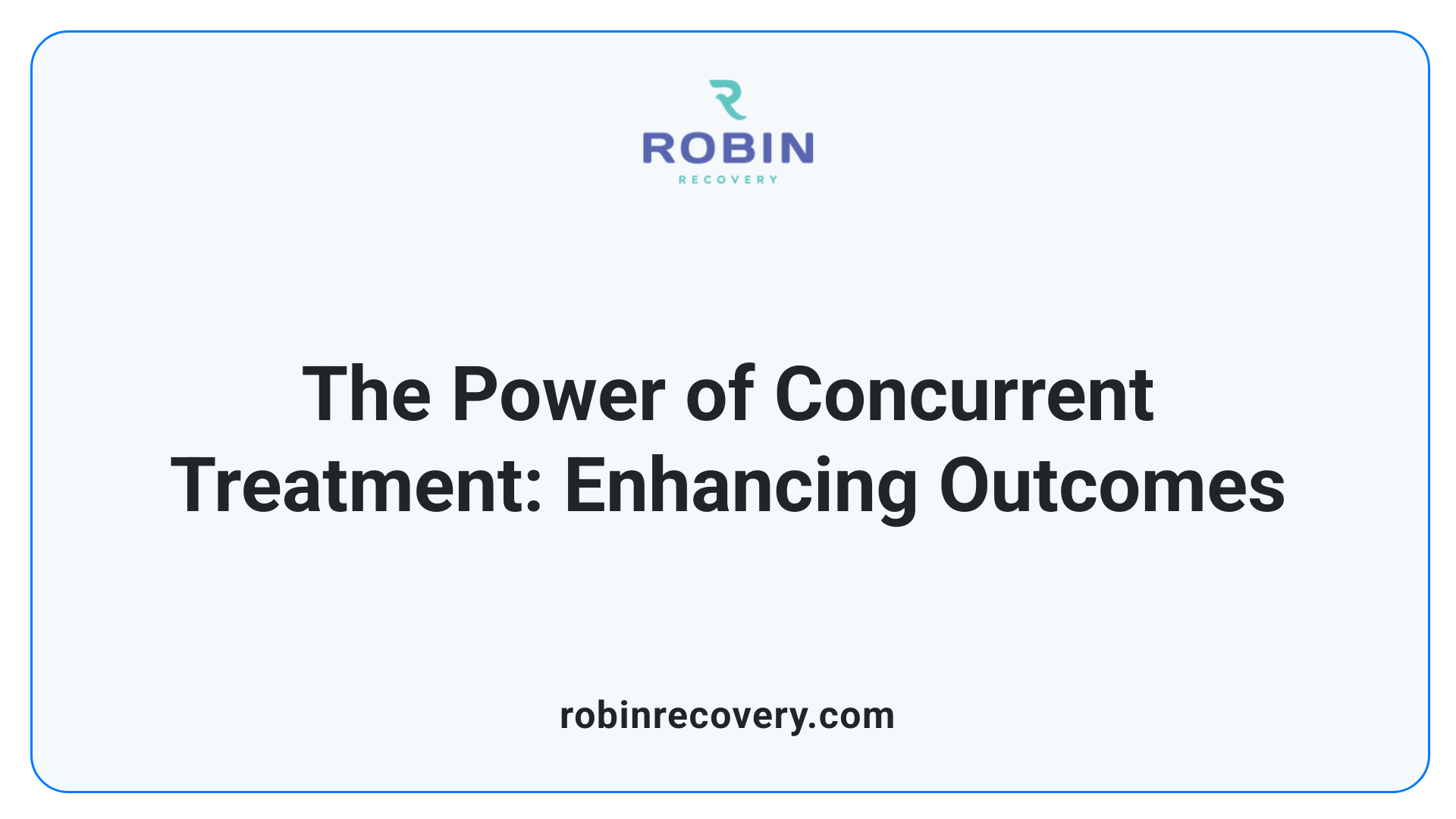
Why is it important to treat co-occurring disorders together?
Treating co-occurring disorders at the same time is crucial because these conditions are often interconnected, influencing each other's course and symptoms. When mental health issues such as depression, anxiety, or bipolar disorder are treated separately from substance use problems, the risk of relapse and symptom rebound increases.
Integrated approaches directly address the complex relationship between mental health and substance use. For example, substance use can worsen psychiatric symptoms, while untreated mental health issues may lead to continued or increased substance misuse as a form of self-medication.
By managing both disorders simultaneously, treatment can reduce the risk of a destructive cycle where one condition triggers the other. Holistic care—combining therapy, medication, and ongoing supportive services—offers a pathway to more stable and durable recovery.
Patients benefit from tailored interventions that acknowledge the unique interplay of their conditions, enhancing the likelihood of sustained sobriety and mental well-being. This approach not only targets symptoms but also tackles root causes, improving overall quality of life and long-term outcomes.
Research supports that integrated treatment significantly improves health and social outcomes. Patients in dual diagnosis programs experience fewer hospitalizations, reduced relapse rates, and better psychiatric stability. Overall, the comprehensive management of both mental health and substance use disorders provides a more effective and sustainable recovery process.
Benefits of Dual Diagnosis Treatment in the Recovery Journey
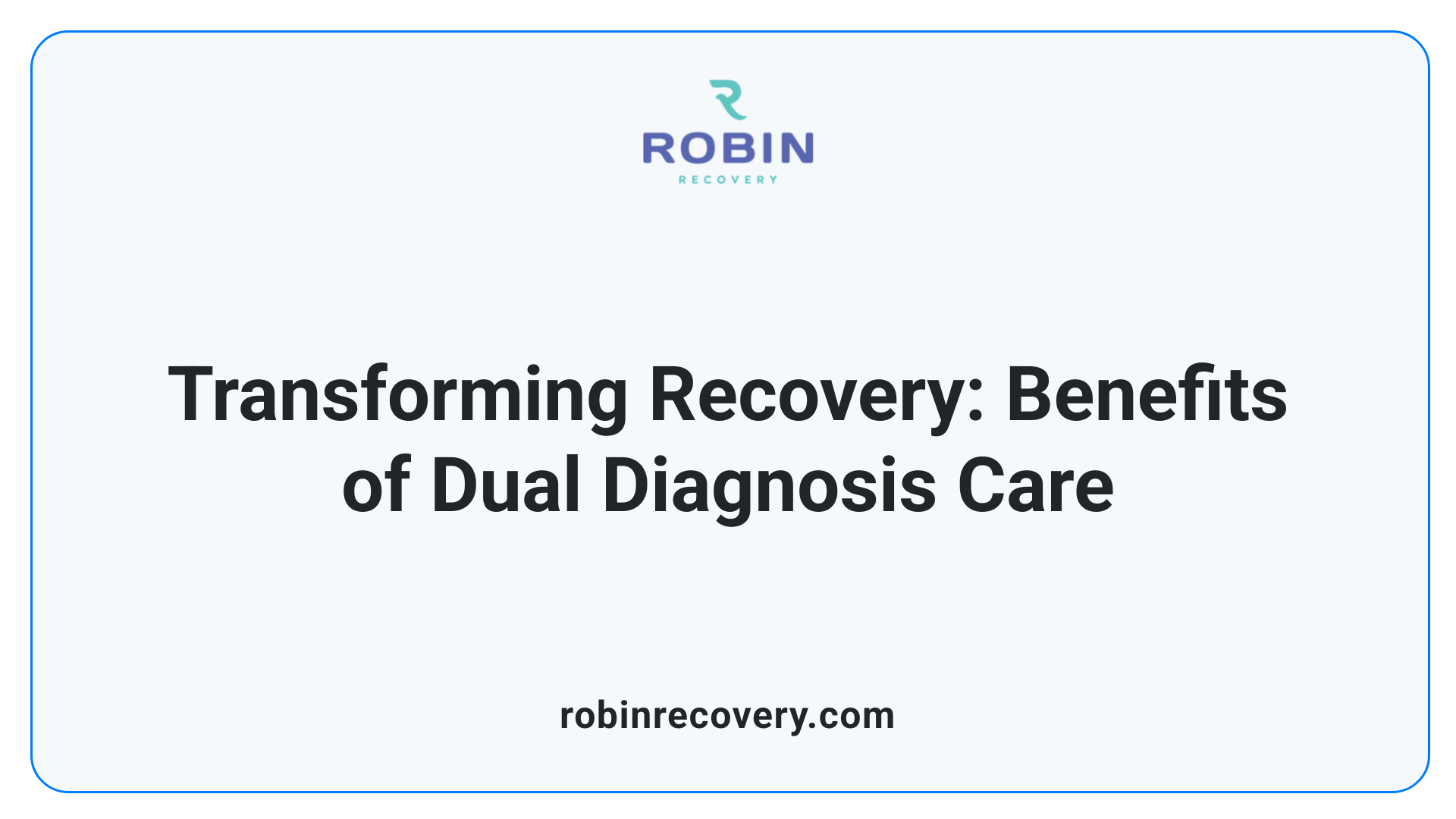
What benefits does dual diagnosis treatment offer in the recovery process?
Dual diagnosis treatment provides significant advantages by simultaneously targeting both mental health and substance use disorders. This integrated approach leads to a substantial reduction in relapse rates because it addresses the root causes and interconnected symptoms of these conditions.
One of the major benefits is holistic healing. Patients not only work on managing substance cravings but also develop essential coping skills to handle stress, emotional distress, and mental health challenges effectively. Therapies such as cognitive-behavioral therapy (CBT) and dialectical behavior therapy (DBT) help individuals recognize triggers and adopt healthier responses.
Furthermore, integrated treatment promotes overall improvement in functioning and quality of life. Individuals often experience fewer hospitalizations because their conditions are managed more effectively through coordinated care. A multidisciplinary team—including psychiatrists, therapists, and addiction specialists—supports the person’s journey, providing ongoing guidance and encouragement.
The long-term success of dual diagnosis treatment lies in its capacity to create sustainable recovery. Patients learn to stabilize their mental health, maintain sobriety, and rebuild social and emotional well-being. This comprehensive care approach is proven to foster lasting sobriety and mental stability, making it a vital component of effective, enduring recovery.
How Dual Diagnosis Treatment Differs from Other Approaches
What makes dual diagnosis care unique?
Dual diagnosis treatment is designed to address both mental health and substance use disorders at the same time through an integrated approach. This means that healthcare providers work collaboratively using therapies like cognitive-behavioral therapy (CBT), dialectical behavior therapy (DBT), and medication management tailored specifically for each individual’s combined conditions.
Unlike traditional treatments that focus only on either addiction or mental health separately, dual diagnosis programs consider the interconnected nature of these issues. Care plans are personalized and often delivered in inpatient or outpatient settings, emphasizing a holistic pathway to recovery. This comprehensive approach helps in managing complexities like overlapping symptoms and reduces the chances of relapse.
Limitations of isolated treatment models
When treatment is delivered separately for mental health or substance use issues, it often falls short in addressing the underlying links between the two conditions. Programs that focus solely on addiction might neglect mental health symptoms, leading to incomplete recovery and higher relapse rates.
Similarly, mental health programs without an addiction component might fail to address substance use behaviors that contribute to psychological symptoms. This gap leaves many patients vulnerable to ongoing cycles of relapse, hospitalizations, and persistent symptoms.
Benefits of combined, integrated care
Integrated treatment models are more effective because they recognize and target the complex relationship between mental health and substance use. This approach offers several advantages:
- Improved health outcomes by treating all issues concurrently
- Reduced risk of relapse due to comprehensive management of triggers
- Enhanced motivation as patients see progress on multiple fronts
- Decreased stigma, as care is provided in a coordinated, non-judgmental manner
- Better long-term stability with ongoing support tailored to these intertwined disorders
By embracing an integrated strategy, dual diagnosis programs provide a pathway for lasting recovery that isolated models often cannot deliver. This holistic care maximizes the chances that individuals will achieve and sustain improved mental and physical health.
Moving Toward Holistic, Sustainable Recovery
Effective recovery from dual diagnosis hinges on recognizing the complex, intertwined nature of mental health and substance use issues. Implementing integrated treatment models—guided by thorough screening, personalized approaches, and multidisciplinary teams—provides the most promising pathway for sustained wellness. Educating patients, involving support networks, and leveraging evidence-based therapies are crucial steps toward overcoming co-occurring disorders. As research underscores the superiority of integrated care, healthcare providers and policymakers must prioritize expanding dual diagnosis programs to ensure that individuals receive the comprehensive, effective care they need to lead healthier, more balanced lives.
References
- Dual Diagnosis: Definition & Treatment - Cleveland Clinic
- Dual diagnosis capability in mental health and addiction treatment ...
- 5 Benefits of Dual Diagnosis Treatment | Fort Worth TX
- Screening and Treatment of Co-Occurring Disorders - SAMHSA
- The effects of residential dual diagnosis treatment on alcohol abuse
- When Is Dual Diagnosis Treatment The Right Choice?
- 5 Benefits of Dual Diagnosis Treatment - Red Oak Recovery
- Deal with a Dual Diagnosis: Substance Abuse & Mental Health
- Dual Diagnosis: An Overview - Lincoln Trail Behavioral Health System
